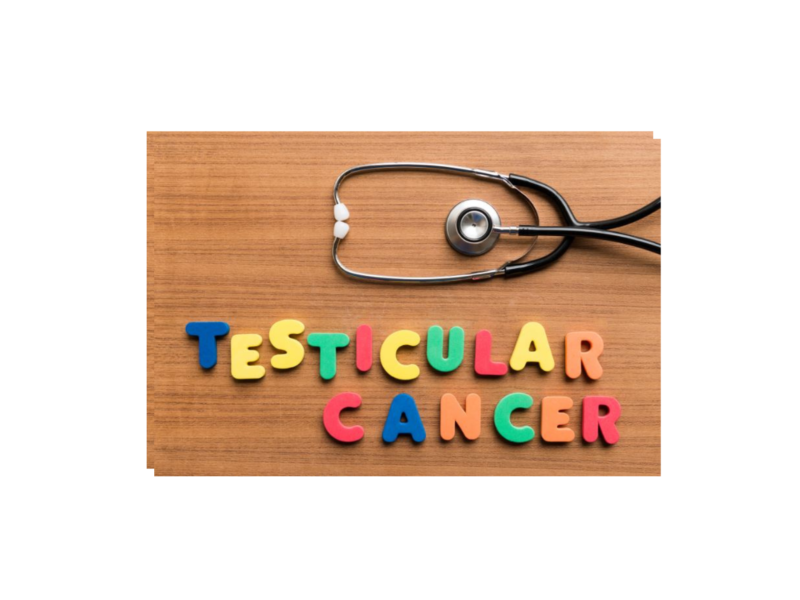A very uncommon type of cancer that affects the testicles, the male reproductive organs in charge of creating sperm and testosterone, is testicular cancer. Even though it mostly affects younger men between the ages of 15 and 40, men of all ages must be aware of the illness and its potential consequences. For testicular cancer confined to the testicles (stage 1), the five-year relative survival rate stands at 99%. When testicular cancer has extended to the lymph nodes in the retroperitoneal area (located at the back of the abdomen), the five-year relative survival rate stands at 96%. This article will examine testicular cancer, including its causes, symptoms, and available treatments, as well as answer the frequently asked question of whether it can result in infertility.
Knowledge about Testicular Cancer
When aberrant cells in the testicles grow out of control and form a tumor, testicular cancer develops. Although there is no known cause for testicular cancer, there are several known risk factors. These consist of:
1. Age: Men under the age of 34 have the highest prevalence of testicular cancer, which is more prevalent in younger men.
2. Cryptorchidism: Males with undescended testicles at birth are more likely to develop testicular cancer.
3. Family history: The risk is increased if a close relative has been diagnosed with testicular cancer.
4. Personal history: Men are more likely to get testicular cancer in the second testis if they’ve already had it in the first.

Common Symptoms
Knowledge about the signs and symptoms of testicular cancer is essential since an early diagnosis greatly increases the likelihood of a favorable outcome. These signs could consist of:
1. A testicular lump or enlargement.
2. Aching or pain in the scrotum or testicles.
3. A feeling of heaviness or pain in the lower abdomen or groin.
4. Lower back aches or back discomfort that is persistent.
5. Breast tissue enlargement or soreness.
It is crucial to speak with a healthcare provider for a thorough evaluation if you encounter any of these symptoms.
Diagnosis and Treatment
A physician might conduct a thorough physical assessment, followed by supplementary assessments such as blood examinations, ultrasound scans, or a biopsy, in order to identify testicular cancer. The stage of cancer and its spread may be determined by additional testing if testicular cancer is found to exist.
Chemotherapy, radiation therapy, and surgery are available treatment options for testicular cancer. The type and stage of the patient’s cancer, as well as their general health, are among the variables that influence the treatment option.
Testicular Cancer and Infertility
Whether testicular cancer can lead to infertility is one of the worries that many men have after receiving the diagnosis. Infertility is not typically directly caused by testicular cancer, though it might affect fertility depending on how it is treated.
Surgical Removal of the Affected Testicle: Testicular cancer treatment in some circumstances necessitates surgical removal of the damaged testicle. If the residual testis is healthy, it can continue to generate sperm and keep the reproductive system fertile. Fertility will be impacted if both testicles are removed, thus options like sperm banking or assisted reproductive technologies should be thought about beforehand.
Chemotherapy and Radiation Therapy: These may have a temporary or long-term impact on sperm production, depending on the patient and the particular course of treatment. Chemotherapy for testicular cancer normally lasts three weeks every cycle. Depending on the tumor’s stage, testicular cancer may be treated with 1 to 4 chemotherapy treatments. A patient may take one medication at a time during treatment, or a combination of several medications taken simultaneously.
If future fertility is a concern, it’s crucial to talk about options for fertility preservation, such as sperm banking, before starting these therapies.
Fertility Preservation Options
There are various treatments available for men worried about protecting their fertility before receiving treatment for testicular cancer:
1. Sperm banking is gathering and preserving sperm samples before the start of cancer therapy. Future assisted reproductive methods like in vitro fertilization (IVF) may make use of this frozen sperm.
2. Testicular Sperm Extraction (TESE): A surgical procedure known as TESE can be used to remove sperm straight from the testicle if it is not present during the ejaculation process.
3. Donor Sperm: If fertility cannot be maintained utilizing the aforementioned techniques, couples may think about using donor sperm for assisted reproductive treatments.
In most instances, testicular cancer does not directly result in infertility, even though it is a serious condition that needs immediate medical attention. However, surgical removal of the testis, chemotherapy, and radiation therapy are all testicular cancer therapies that may affect a man’s ability to conceive. Most men with testicular cancer who receive chemotherapy eventually lose their ability to conceive. After the treatment is over, fertility typically returns to normal after a few months. But for some men, it never gets better. This is probably the case if you have had really large dosages of chemotherapy.
Before beginning treatment, men with testicular cancer must talk with their healthcare providers about their choices for preserving their fertility. Many men can still become fathers because of developments in reproductive technologies, even after receiving treatment for testicular cancer.





